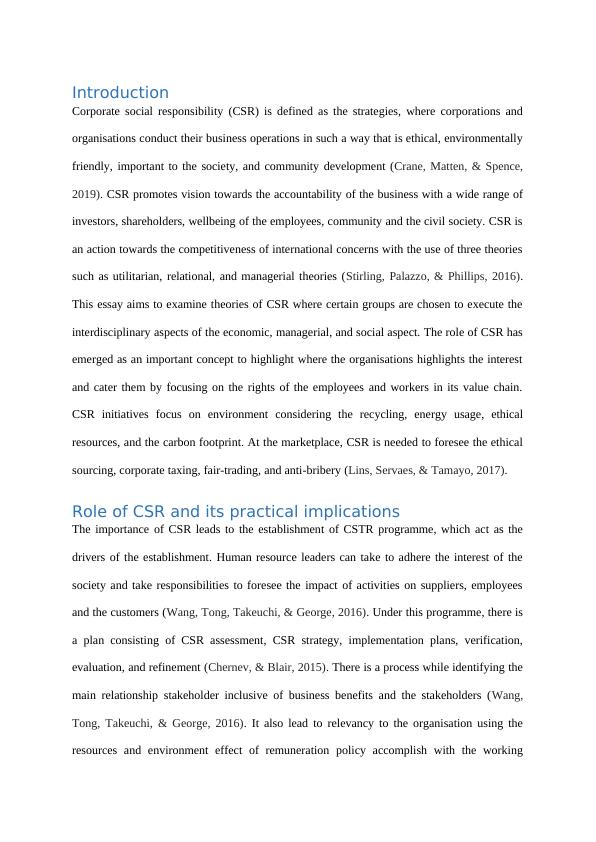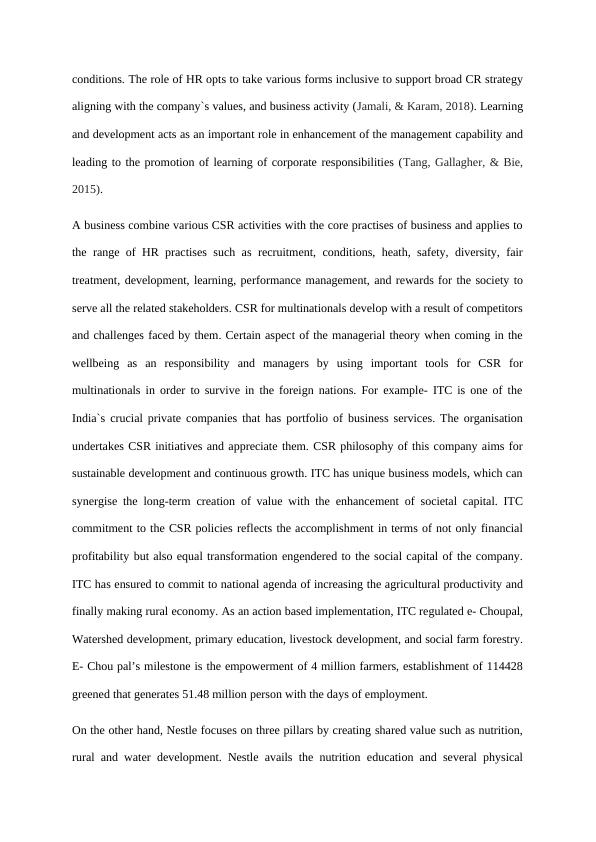Theories of Corporate Social Responsibility: Practical Implications
Choose one of the given topics to discuss and provide practical examples.
7 Pages1865 Words95 Views
Added on 2022-10-01
About This Document
This essay examines theories of CSR where certain groups are chosen to execute the interdisciplinary aspects of the economic, managerial, and social aspect. It discusses the role of CSR, its importance, and practical implications. It also provides examples of CSR initiatives by companies like ITC, Nestle, and Coca-Cola.
Theories of Corporate Social Responsibility: Practical Implications
Choose one of the given topics to discuss and provide practical examples.
Added on 2022-10-01
ShareRelated Documents
End of preview
Want to access all the pages? Upload your documents or become a member.
Assignment On The Institutional Affiliation
|14
|2985
|21
PDF- Corporate Social Responsibility
|10
|2608
|124
Social Responsibilities in business Discussion 2022
|6
|1670
|20
Managing Across Borders Assignment Solved
|8
|1655
|119
Corporate Social Responsibility on Corporate Tax and Investment Decisions.
|11
|2910
|14
Assessment on Management | 1
|7
|1896
|18



